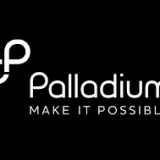Background on Ghana’s Push to Attract Foreign Capital The World Bank estimates that Africa’s infrastructure funding deficit alone approximates US$100 billion per year. Ghana is not immune from this. President Akufo-Addo was in the US in February 2018 to, among other things, encourage US investors and institutions to come to Ghana and invest in businesses, infrastructure, and other critical sectors. Ghana has been actively courting international investors to build capital flows into the developing economy as local institutional capital, despite being close to approximately US$2 billion, is scarce in terms of needs. In order to crowd-in these foreign capital and risk mitigation sources, Ghana through the Ministry of Finance is also trying to enhance the country’s balance sheet by restructuring the maturity term structures on national debt to ease the burden of the shorter term funding maturities, on the GOG’s treasury. These pressures have strained the GOG and the Ministry of Finance is pushing state-owned-enterprises (SOEs) to find their own sources of sustainable financing to meet their needs going forward. Outside of SOEs, this also applies to specific national projects as well as infrastructure.
Ghana, to some degree, has made another step forward to facilitate mobilizing outside capital by announcing on March 4, 2018 through the Ministry of Finance, that it has committed US$50 million – of which US$10 million was just funded, to its membership in the Africa Finance Corporation (AFC). This entity provides its member nations with access to capital at potentially favorable terms. AFC can do this with its capital base. It has made $3 billion in commitments to projects with $2.6 billion funded. Its members effectively benefit from AFC’s own access to good credit terms based on a strong credit rating internationally. This mobilizes cheaper financing with AFC’s participation.
Activities and Tasks
The lead Advisor will perform the following tasks, in conjunction with assistance from a supporting local Advisor:
1 Identify, analyze, and catalogue the relevant major international sources of impact, commercial and concessional capital and risk mitigation; 2 Meet or dialogue with selected international sources of impact, commercial, and concessional capital and risk mitigation resources to ascertain interests for Ghana; 3 Identify their relevant areas of activities and mandates as they could apply to Ghanaian national capital needs and interests; 4 Travel and meet and dialogue with key decision makers within representative institutions; 5 Review documents of the targeted above relevant sources of international capital and risk mitigation tools; 6 Develop an Implementation Plan for this assignment. 7 Develop and present a program which could be shared with Ghanaian officials such as the Ministry of Finance; 8 Recommend actions and work plans to unlock these parties’ interests; 9 Work through USAID FinGAP to link into GOG executives and relevant stakeholders to set a framework for responding to the identified needs to attract the identified resources; and 10 Develop and submit a final report relating to activities, findings, lists of meetings and respective next steps, recommendations, and work plans.
- Two weeks prior to the delivery of the final report, the advisor shall draft and submit a Draft Final Report to the Chief of Party of USAID FinGAP. The COP may seek comments and/or edits from USAID and/or stakeholders to be incorporated into the Final Report.
Deliverables The lead International Advisor with the assistance of a supporting local Advisor, will produce the following deliverables:
1 An implementation plan. 2 A (Power Point) presentation, which can be used to identify, assess, analyze, and target the international sources of impact, commercial, and concessional capital plus risk mitigation tools as are applicable to the needs of Ghana. 3 One (half-day or full day) capacity building roundtable in Accra for MOF and relevant Ghanaian parties instrumental in stimulating these resources.
- This conference in Accra should include invitations to GOG officials, pension funds (managers), insurance companies, mutual funds, and banks and their respective regulators, presenting the findings and soliciting their thoughts since they will be interested co-partners and users of some of these outside resources. For example banks and pension funds may receive outside risk mitigation tools to entice their engagement in Ghana as well.
- Identification of regulatory changes needed in Ghana if any, for international resources to be more engaged.
- Recommendations of actions and work plans for accomplishing the mobilization of outside resources.
- Report on the results of feasibility study on attracting leading impact, commercial, and concessional capital as well as risk mitigation tools into Ghana. Include projected steps to be taken to attract these resources.
- Draft Final Report, which includes documents relating the above deliverables, due two weeks before the completion date of the assignment.
- Final Report, which incorporates comments and edits from USAID FinGAP, and/or USAID, and/or stakeholders.
All deliverables must be submitted in English, using the USAID FinGAP report template, to USAID-FinGAP.
Post of Duty Accra, Ghana based (Total LOE 25 days).Level of Effort
The LOE required is estimated to be 5 days. 5-day work week allowed; 6-day work week when traveling internationally. Travel within Ghana, Europe, and US (Washington DC) may be needed. Supporting Local Advisor: 25 LOE days.Knowledge of/experience in international and/or infrastructure funds or investments.
More Information
- Job City Ghana


